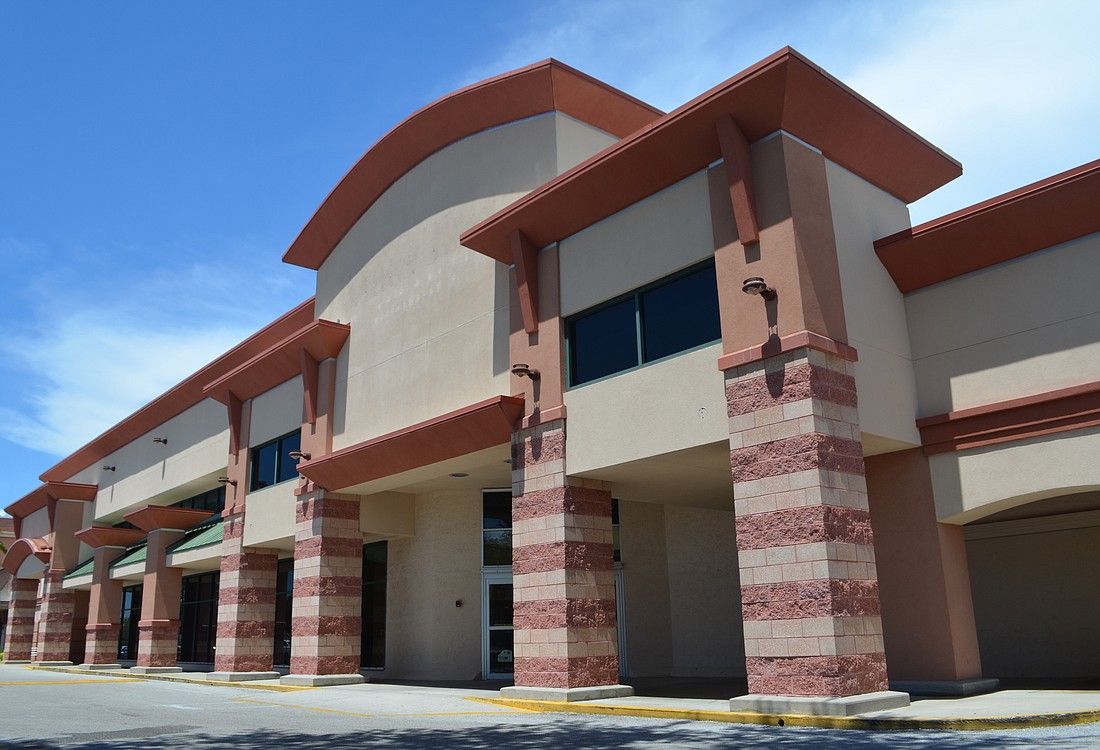- February 13, 2026
-
-
Loading

Loading

Seven months after the City Commission unanimously directed staff to work on a proposal to allow residential construction on some commercially zoned properties, the board voted 3-2 to reject the concept presented to them at a meeting Monday.
The proposal would have allowed residential construction on properties larger than one acre carrying a Commercial General zoning designation. The privately initiated zoning text amendment originated with the owners of Midtown Plaza, a 7.5-acre shopping center located near the intersection of U.S. 41 and Bahia Vista Street.
Under the proposal, the commercial properties would have had a residential density of 25 units per acre with a requirement to provide one affordable housing unit for every three market-rate units. The maximum height in the zoning district would increase from 45 feet to 65 feet for residential or hotel properties.
The increased height for hotels was the primary provision that drew opposition from a majority of a commission. Commissioners Shelli Freeland Eddie, Jen Ahearn-Koch and Willie Shaw said they wanted the provision to encourage the creation of affordable housing. They saw the hotel regulation as a giveaway to developers without any benefit to the city.
The commission later voted 4-1 to direct staff to prepare a new proposal with an affordable housing requirement tied to the hotel height increase.
“I think it’s important if we give any extra anything, that we require affordable housing,” Ahearn-Koch said.
Midtown Plaza owner Gavin Meshad said the increased hotel height was intended to make it easier for developers to build hotels on Commercial General properties. Although hotels are already a permitted use, he said the current 45-foot height limit makes it difficult to build the number of rooms necessary to make a project viable.
“This was correcting, in my opinion, a flaw in the zoning district,” Meshad said.
Commissioners Liz Alpert and Hagen Brody agreed with Meshad. They said they had two priorities when considering the zoning change: emphasizing affordable housing and encouraging the redevelopment of aging shopping center properties. They considered the height increase a reasonable concession to make it easier to build on the land.
“We can sit here and not act and let it collect dust, or we could do something that betters that community,” Brody said.
With a majority of the board unsupportive of the hotel height increase, some commissioners discussed their thoughts on how to extract additional benefits if a property owner could build taller buildings. Although Meshad asked the commission to consider the hotel and housing proposals separately on their own merits, the the board did not want to pass on an opportunity to emphasize affordable housing in new building regulations.
“We can never get affordable, attainable housing in this city unless we require it,” Freeland Eddie said. “History has shown that over and over again.”
Freeland Eddie said she did not want to obligate developers to build affordable housing just to get additional height for a hotel project. She proposed an alternate system that would require property owners to pay into an affordable housing fund to get the additional height for hotels.
City Attorney Robert Fournier said any revised proposal would have to comply with a state law that prohibits municipalities from requiring developers to make an affordable housing contribution without providing incentives that offset all of the developer's costs.
After the meeting, Meshad expressed some frustration with the direction of the commission’s conversation. He said he was uncertain whether he would be OK with a proposal to pay into a housing fund in exchange for additional height for a hotel project, stating it would depend on the details of the plan.
Even if the city ultimately approves a mixed-use zoning change, Meshad said there were no plans to add housing to the Midtown Plaza property. He said that could change as the site develops over time.
“I just don’t know how to do it right now with my existing tenant mix and existing leases,” Meshad said.